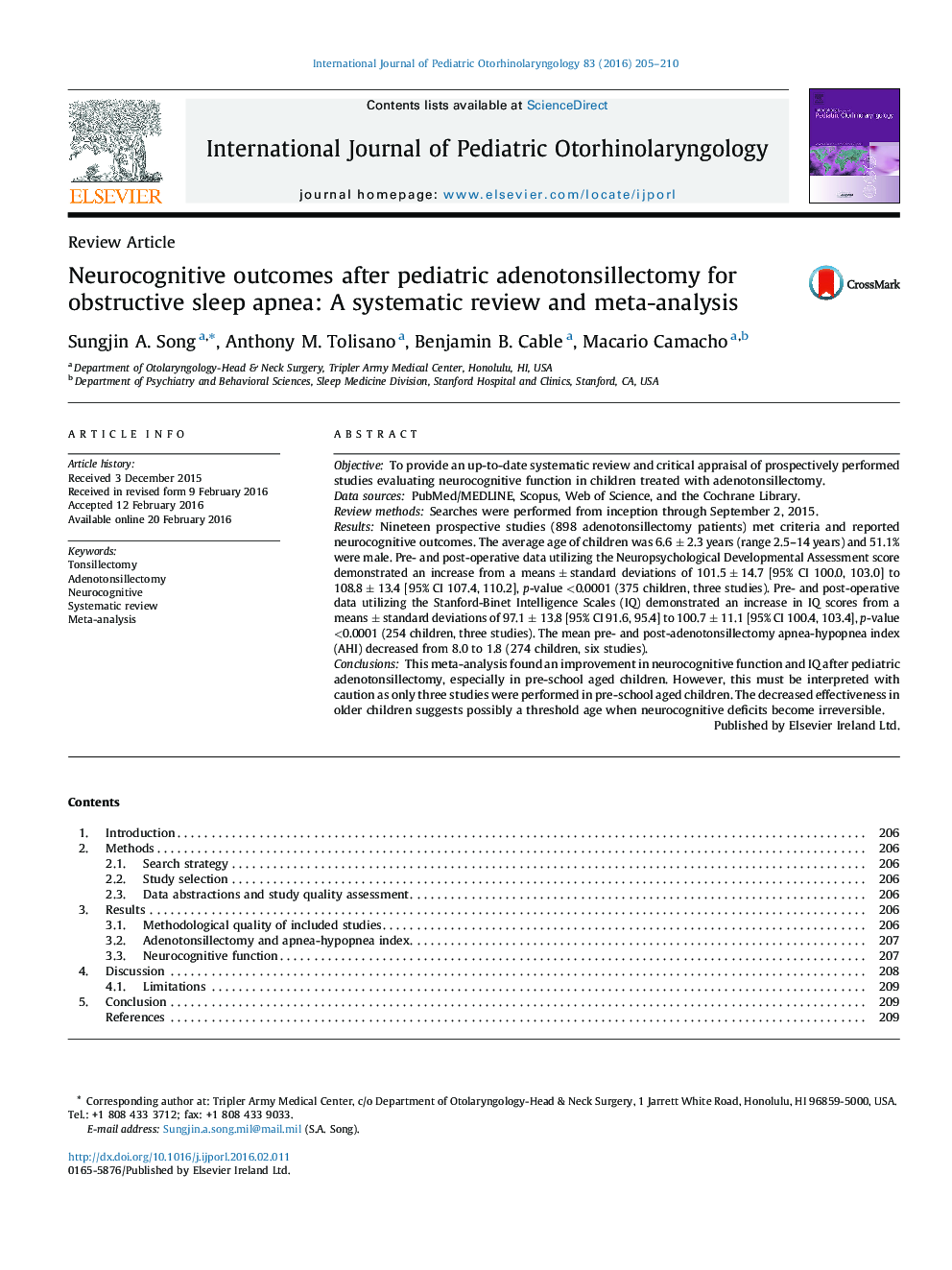| Article ID | Journal | Published Year | Pages | File Type |
|---|---|---|---|---|
| 6213261 | International Journal of Pediatric Otorhinolaryngology | 2016 | 6 Pages |
ObjectiveTo provide an up-to-date systematic review and critical appraisal of prospectively performed studies evaluating neurocognitive function in children treated with adenotonsillectomy.Data sourcesPubMed/MEDLINE, Scopus, Web of Science, and the Cochrane Library.Review methodsSearches were performed from inception through September 2, 2015.ResultsNineteen prospective studies (898 adenotonsillectomy patients) met criteria and reported neurocognitive outcomes. The average age of children was 6.6 ± 2.3 years (range 2.5-14 years) and 51.1% were male. Pre- and post-operative data utilizing the Neuropsychological Developmental Assessment score demonstrated an increase from a means ± standard deviations of 101.5 ± 14.7 [95% CI 100.0, 103.0] to 108.8 ± 13.4 [95% CI 107.4, 110.2], p-value <0.0001 (375 children, three studies). Pre- and post-operative data utilizing the Stanford-Binet Intelligence Scales (IQ) demonstrated an increase in IQ scores from a means ± standard deviations of 97.1 ± 13.8 [95% CI 91.6, 95.4] to 100.7 ± 11.1 [95% CI 100.4, 103.4], p-value <0.0001 (254 children, three studies). The mean pre- and post-adenotonsillectomy apnea-hypopnea index (AHI) decreased from 8.0 to 1.8 (274 children, six studies).ConclusionsThis meta-analysis found an improvement in neurocognitive function and IQ after pediatric adenotonsillectomy, especially in pre-school aged children. However, this must be interpreted with caution as only three studies were performed in pre-school aged children. The decreased effectiveness in older children suggests possibly a threshold age when neurocognitive deficits become irreversible.
